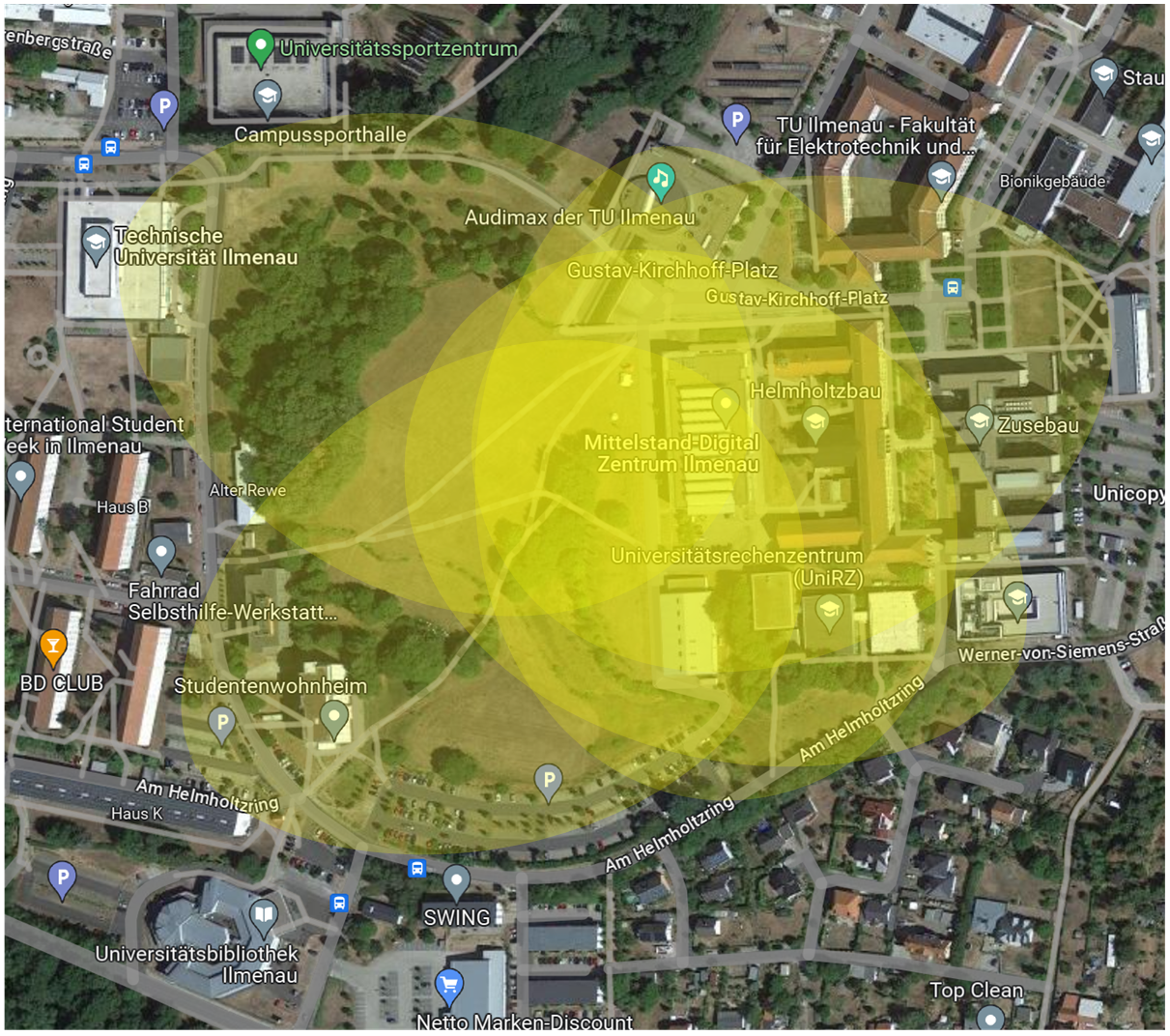6G Campus Ilmenau
Contact
Nicole Sauer
Integrated Communication Systems Group
+49 3677 692829
+49 3677 694823
Nicole Sauer
Integrated Communication Systems Group
+49 3677 692829
+49 3677 694823

As part of the 6GCI project, a flexible, future-proof 5G+ campus network will be set up on the Ehrenberg campus of TU Ilmenau.
The project extends the existing 5G test infrastructure of the Faculty of Computer Science and Automation with equipment for the Ehrenberg campus, resulting in a system with a total of around 30 radio cells for indoor and outdoor use. The outdoor cells are intended to provide extensive coverage of the campus grounds. The radio coverage will be supplemented by additional indoor cells in TU Ilmenau buildings.
The network will be available for research and experimental purposes for the five participating specialist areas, as well as for experiments by other specialist areas and research groups. In addition to research in the direct context of 5G and 6G, research is also planned on various application areas of 5G and 6G such as autonomous driving, delivery logistics, the Internet of Things, augmented reality and automated production. In addition, as a supplement to the university's Wi-Fi network, the network will also be able to be used by university staff and students for time-critical and highly reliable applications in the future.

Maps Data: Google © 2023
The project and the concept for the operation and management of the network build on previous research in the field, including the ongoing 5G-RACOM, KIMA-5G and 5G-ECOnet projects. The experience of our spin-off, Aivader Gmbh, project partner of the KIMA-5G and 5G-Econet projects, will also be incorporated into the construction and operation of the network.
Technically, the radio access system is largely based on an OpenRAN architecture. The network is operated in stand-alone mode, with the core network consisting of a flexible service-based architecture. The architecture thus supports the simple expandability and flexibility of the network. The flexibility and expandability of the system are of particular interest for conducting research on 5G and 6G itself, but also for customizations for specific fields of application.
The project will run for three years. The project is funded by the Ministry of Economics, Science and Digital Society of the Free State of Thuringia, co-financed by the European Union (ERDF) and coordinated by the Thüringer Aufbaubank.
The project is being coordinated by Prof. Dr. Andreas Mitschele-Thiel from the Integrated Communications Systems group. The Integrated Communication Systems group will also play a key role in setting up and operating the network. The group of Distributed Systems and Operating Systems, headed by Prof. Dr. Boris Koldehofe and Computer Architecture and Embedded Systems, headed by Prof. Dr. Daniel Ziener are participating in the project with research into in-network processing using innovative computer architectures. The groups of Medical Informatics, headed by Prof. Dr. Sylvia Saalfeld, and Development of Systems for the Internet-of-Things, headed, by Prof. Dr. Florian Klingler, are focusing on innovative applications of the 5G network in medical technology and the Internet of Things.

The applicants of the 6GCI project